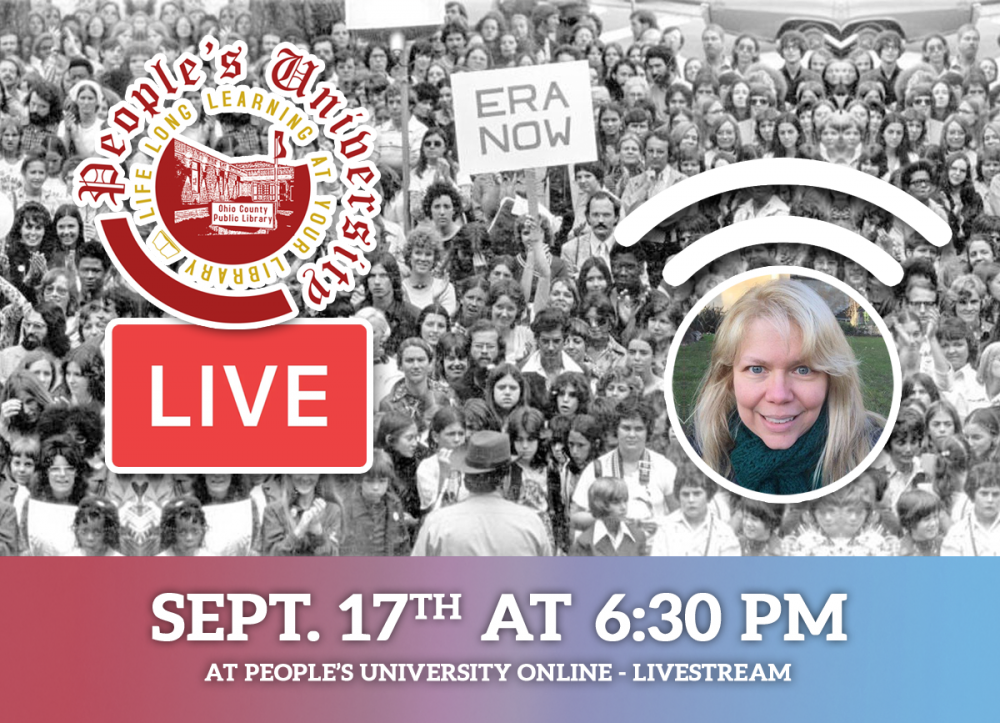


For Constitution Day, 2020, this class will examine the amendment process in the context of the struggle for the passage of the Equal Rights Amendment (ERA), which read, in its three incarnations:
1923 version ("Lucretia Mott Amendment by Alice Paul, Crystal Eastman, et al):
Men and women shall have equal rights throughout the United States and every place subject to its jurisdiction.
1943 version:
Section 1: Equality of rights under the law shall not be denied or abridged by the United States or by any state on account of sex. (Alice Paul)
2014 version:
Section 1: Women shall have equal rights in the United States and every place subject to its jurisdiction. Equality of rights under the law shall not be denied or abridged by the United States or by any State on account of sex.
On March 22, 1972, the ERA passed the Senate and the House of Representatives by the required two-thirds majority and was sent to the states for ratification. An original seven-year deadline was later extended by Congress to June 30, 1982. When this deadline expired, only 35 of the necessary 38 states (the constitutionally required three-fourths) had ratified the ERA. It is therefore not yet a part of the U.S. Constitution.
The Equal Rights Amendment has been reintroduced in every session of Congress since 1982. (www.equalrightsamendment.org/faqs)
Note: All attendees who ask a relevant question of our instructor toward the end of the program will be entered in a drawing to win an Ida Bell Wells tea towel from RadicalTeaTowels.com. Ida B. Wells was born a slave in Mississippi. Her family was freed from slavery shortly after her birth by the Emancipation Proclamation. On a train ride from Memphis to Nashville in 1884, for which she had bought a first-class ticket, Wells was asked to move to the car for African Americans. Her refusal to do so led her to sue the railroad, a case she won, but which was later overturned by the Tennessee Supreme Court. This was the event that marked a turning point in Wells' life that initiated her in civil rights and women’s rights activism.
Watch this class live, 6:30 pm EST, Thursday, September 17 on the People's University Youtube channel or on the People's University Facebook page. Log into your YouTube or Facebook account during the broadcast and interact with our instructor through the comments box. You could win a "Votes for Women" toiletry bag (see details below)!

Instructor: Anne Marie Lofaso is Arthur B. Hodges Professor of Law at the West Virginia University College of Law. In 2010, she was named WVU College of Law Professor of the Year. She is also a four-time recipient of the WVU College of Law faculty-scholarship award.
Subscribe to the People's University Youtube channel or like us on the People's University Facebook page or to receive notifications of our upcoming People's U broadcasts. To receive emails about our upcoming programs, visit our News page, click the "Subscribe" button to sign-up for our news blasts.
The People’s University features courses (taught by experts in each subject) that enable patrons to pursue their goal of lifelong learning in classic subjects such as history, music appreciation, philosophy, and literature. Patrons may attend as many classes as they wish. There are no tests of other requirements and all programs are free and open to the public.
© Copyright 2025 Ohio County Public Library. All Rights Reserved. Website design by TSG. Powered by SmartSite.biz.